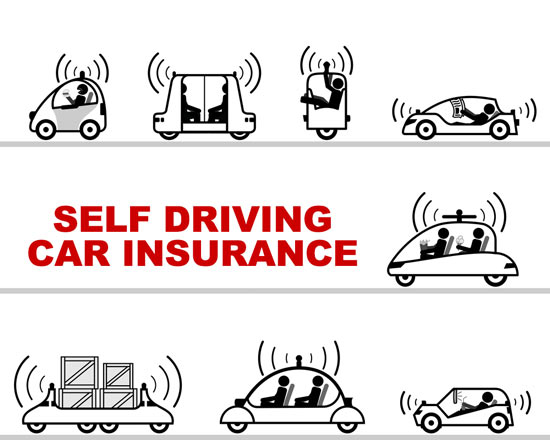Self driving car technology: Changing the auto industry in the next 20 years
The advent of self driving car technology has the potential to disrupt the auto insurance industry immeasurably in the next twenty years.
There are already several car companies rolling out some form of “autonomous vehicle” (AV) that assists the driver:
- Audi
- Cadillac
- Mercedes-Benz
- Tesla
- Volvo
- Ford
All will offer vehicles in the near future that do some of the driving for you. Ford actually plans to roll out a fleet of driverless cars without a steering wheel or pedals in 2021.
Revolutionary effects
- Reduction in auto accidents: According to a report by McKinsey & Co, widespread adoption of self-driving cars could eliminate 90% of auto accidents in the US.
- Less need for collision insurance: With fewer accidents taking place, the need for collision insurance will plummet. In a February 2017 interview with CNBC, Warren Buffett theorized that “when a significant portion of the cars on the road are autonomous, it will hurt Geico’s business very significantly.”
- Shrinking of auto insurance sector: Furthermore, according to a report by the global accounting firm KPMG, the personal auto insurance sector could shrink to 40% of its current size within 25 years as cars become safer thanks to self-driving technology.
Elon Musk’s perspective: reducing insurance premiums for self-driving cars
Elon Musk of Tesla has argued that insurance premiums should be adjusted to account for its cars being safer. The National Highway Traffic Administration (NHTA) has found that crash rates for Tesla vehicles have plummeted 40% since Autopilot was first installed in 2015. Musk asserts that Tesla owners should be rewarded accordingly with lower insurance premiums.
Today, the market is highly focused on service, price, and other factors. Thus, consumers are seeking out car insurance reviews before choosing a policy. It’s certain that a lot will change when insurance is bundled to the car or service provider, rather than the driver (as it is today). It may actually be similar to the fleet insurance model.
Change in responsibility for accidents–blame the automaker
As more AV technology is employed in cars, the responsibility for accidents will shift from the driver to the automaker–it will increasingly be faulty technology that will cause accidents rather than driver mistakes. Already automakers are announcing that they will take full responsibility for accidents that take place in Autonomous Vehicles. Volvo set a precedent when it announced in 2015 that it will accept full liability in the event its self-driving car gets in a crash.
Exciting possibilities
Time and accident litigation will tell how adoption of AV all shakes out. The US government will also face challenges to develop laws that reflect the new reality of self driving cars on the roads. Regulatory agencies tend to err on the side of caution, so this may end up slowing the adoption of fully autonomous vehicles. But overall, Autonomous Vehicle technology opens up an exciting new future for drivers while disrupting the auto insurance industry.


